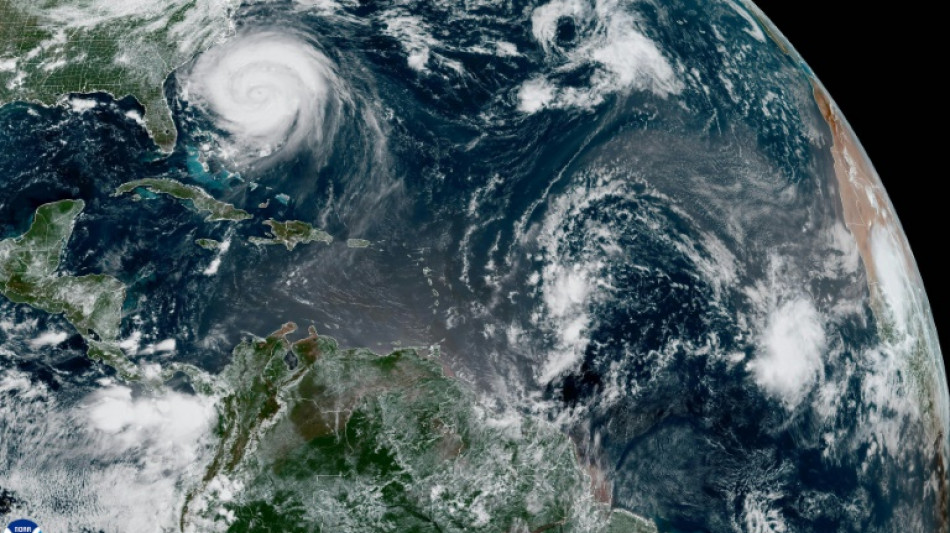
SCS
0.0200


Hurricane Erin's furthest bands began brushing the outer banks of North Carolina's coast Wednesday, where the Category 2 storm triggered mandatory evacuation orders, and officials warned summer beachgoers along the US East Coast of life-threatening surf and rip currents in coming days.
Landfall isn't expected for Erin -- welcome news for the southern US state still reeling from last year's deadly Hurricane Helene -- but North Carolina officials declared an emergency Tuesday as Erin's predicted impacts began taking shape.
Portions of coastal North Carolina and Virginia were under tropical storm warnings, according to officials at the National Hurricane Center (NHC).
"Swells generated by Erin will affect the Bahamas, Bermuda, the east coast of the United States and Atlantic Canada during the next several days," NHC said, adding that "Erin is a large hurricane."
As of Wednesday afternoon, Erin was churning northward some 245 miles (395 kilometers) southeast of North Carolina, packing maximum sustained winds of 110 mph (175 kph), the NHC said -- with the possibility it could still restrengthen to a major hurricane.
Its unusually large size means tropical storm-force winds extend hundreds of miles from its center, earning it the moniker "Enormous Erin" by hurricane specialist Michael Lowry, who wrote on Substack the United States was fortunate to be spared a direct hit.
Mandatory evacuation orders were in effect for Ocracoke and Hatteras Islands in North Carolina.
North Carolina Governor Josh Stein urged residents to store enough food, water and supplies to last up to five days -- and to safeguard important documents like insurance policies.
"We have already pre-positioned three swift water rescue teams and 200 National Guard troops to various locations on the coast, along with boats, high clearance vehicles and aircraft," he added.
- Massive waves -
Highway 12 -- which runs through the scenic Outer Banks of North Carolina, a string of low-lying islands and spits already under threat from sea-level rise and erosion -- could be left impassable by waves as high as 20 feet (six meters).
Last year's Hurricane Helene caused approximately $60 billion in damage to North Carolina, equivalent to almost two years of the state's budget, said Stein, who criticized what he called inadequate federal assistance from the administration of President Donald Trump.
Trump has mused about dismantling the Federal Emergency Management Agency (FEMA) -- whose work he believes should fall to state leaders and has long been a target of conspiracy theories from the political right.
- Insurance risks -
The Atlantic hurricane season, which runs from June 1 to November 30, has entered its historical peak.
Despite a relatively quiet start with just four named storms so far, the National Oceanic and Atmospheric Administration continues to forecast an above-normal season.
Scientists say climate change is supercharging tropical cyclones: warmer oceans fuel stronger winds, a warmer atmosphere intensifies rainfall, and higher sea levels magnify storm surge.
There is also some evidence, though less certainty, that climate change is making hurricanes more frequent.
L.Johnson--ThChM